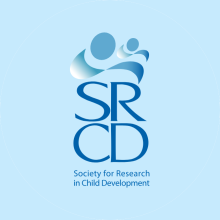July 2015 Spotlight on the SRCD Policy Fellow: Cristina Novoa, Ph.D., M.P.P.
2014-2015 Federal Congressional Policy Fellow
As a developmental psychologist with a long-standing interest in culture and the intersection of research and policy, I was elated when selected for the SRCD Congressional Fellowship upon completion of my Ph.D. a year ago. I was both hopeful and optimistic that my academic training in child development and public policy had prepared me for a career bridging these two worlds. I quickly learned, however, that there is no substitute for direct experience, and I am grateful to have had this opportunity.
Serving as a Congressional Fellow for children’s issues in Senator Kirsten Gillibrand’s office this year has been critical in introducing me to the realities of working at the nexus of developmental science, policy, and politics. Throughout this year, I have primarily worked with staff in the health and judiciary portfolios to carve out a policy agenda focusing on child welfare issues and health disparities. During this time, I have seen firsthand how research contributes to policy, and how sometimes other considerations take priority. And while I had braced myself for a certain degree of culture shock in coming to the Hill, I was surprised to see some unexpected parallels emerge between researching and legislating.
To begin with, I have learned that progress is incremental in both of these endeavors, and that setbacks often present chances for growth. Writing a dissertation or building a research program is a slow, thoughtful process. Similarly, developing a piece of legislation is a multi-step process. It requires input from multiple sources, including advocates, other policy makers, and experts with specialized technical knowledge. I experienced this directly in helping to introduce a bill that would provide grants to schools to develop asthma management plans. And like in academia, persistence is important. When a particular bill fails, I have watched my colleagues think of new avenues for furthering their policy priorities, and I am reminded of how “failed” studies can lead to later research breakthroughs.
Most importantly, I have seen that when silos break down, new opportunities emerge. As someone with an interdisciplinary research background, I was familiar with this within the confines of academia, but had never experienced this in the policy arena. This year, I helped other fellows serving on the Environment and Public Works Committee prepare for a congressional briefing on ozone pollution, a topic that at first seemed unrelated to my background in child development. In doing so, however, I was able to help steer the conversation around the effects of environmental conditions on children’s health, and how these conditions can aggravate disparities in health across the lifespan.
These experiences have helped me deepen my knowledge of both research and policy-making. I am very grateful to SRCD for this unique opportunity, and for providing a wonderful community of colleagues and mentors with whom to share this experience. As I finish my fellowship, I leave with a greater understanding and a stronger awareness of where I fit within this field.
